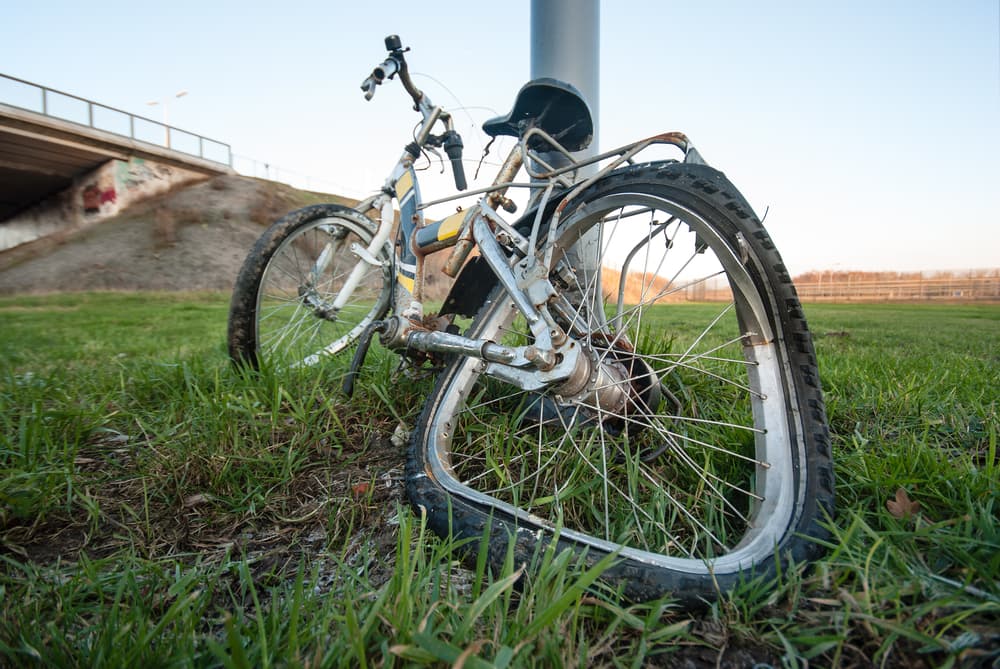When another person’s carelessness causes a bicycle crash, the law gives you the right to hold them accountable. You may be asking, what are Missouri’s bicycle laws? The state has several rules that determine where cyclists can ride, how they must equip their bikes, and what responsibilities drivers have when passing. These rules not only protect cyclists but also establish liability when accidents occur.
Bicycle accidents can cause devastating harm. Having a lawyer who understands Missouri traffic and bicycle regulations makes a difference in how your case is handled. If you’ve been hurt in a bicycle accident someone else caused, contact a Missouri bicycle accident lawyer near you for a free consultation.
Key Takeaways About Missouri Bicycle Accidents
- Missouri cyclists have the same rights and responsibilities as drivers when using public roads
- Riders must obey all traffic signals, stop signs, and right-of-way laws
- Bicycles require specific safety equipment, including brakes and reflectors, especially when riding at night
- Cyclists may use designated bike lanes but must follow the same lane and turning requirements as vehicles
- Motorists must allow at least three feet when passing a bicycle
- Liability in accidents depends on traffic law violations, negligence, and insurance coverage
- Penalties exist for both cyclists and drivers who break traffic or bicycle safety laws
What Are the Basic Traffic Rules for Cyclists in Missouri?
Missouri law treats bicycles as vehicles. Cyclists must follow the same traffic laws that apply to drivers, with a few exceptions created for bicycles. These laws exist to promote safety for everyone sharing the road.
Right to Use Roadways
Bicyclists may ride on most Missouri roads unless specifically prohibited, such as limited-access highways. The law recognizes bicycles as vehicles, so drivers must respect their place on the road. For example, a cyclist riding along a two-lane rural highway has the same right to occupy a lane as a tractor or other slower-moving vehicle.
Following Traffic Signals and Signs
Cyclists must stop at red lights, yield at stop signs, and follow all posted traffic control devices. A bicycle rider rolling through a stop sign in a neighborhood may receive a citation just like a driver would. These requirements also protect the rider, since collisions at intersections often cause the most severe injuries.
Riding Direction and Lane Position
Cyclists must ride in the same direction as traffic. Riding against traffic increases collision risks because drivers don’t expect a bicycle approaching from the wrong direction. Missouri law also requires cyclists to stay as far right as practicable, but riders can move toward the center or left side of the lane when avoiding potholes, parked cars, or preparing to turn. This flexibility protects cyclists from unsafe conditions.
Passing and Turning Requirements
Just like cars, cyclists must follow rules for passing slower vehicles. They must signal turns with hand signals before moving into another lane. For example, a rider making a left turn on a busy street should extend their left arm to signal clearly, then merge carefully into the left turn lane. Using hand signals communicates intentions to drivers and reduces the chance of being struck.
Are There Specific Equipment Requirements for Bicycles in
Missouri?
Bicycles must meet certain safety standards to be legally operated on public roads. These requirements focus on visibility and control, two of the most important factors in preventing accidents.
Lighting and Reflector Requirements
At night, bicycles must have a front white light visible from at least 500 feet and a rear red reflector or lamp visible from at least 600 feet. Many riders add reflective strips to clothing or backpacks for added visibility.
Brake System Standards
Every bicycle must have brakes that allow the rider to stop within 25 feet when traveling at 10 miles per hour on dry pavement. Well-functioning brakes reduce the risk of rear-end collisions with vehicles or pedestrians.
Bell or Horn Regulations
While Missouri law doesn’t require a bell or horn, riders may install one to alert pedestrians or other cyclists. A clear ring or honk often prevents accidents on trails where multiple users share space. For instance, giving a quick signal before passing a jogger ensures they don’t step sideways into the path of a bike.
Helmet Laws and Age Restrictions
Missouri has no statewide helmet law, but many cities enforce their own ordinances. Even where not required, helmets reduce the risk of severe head injuries. Riders of all ages benefit from choosing to wear one.
What Are Missouri’s Rules for Bicycle Lane Usage?
Bicycle lanes and paths provide structured space for cyclists, but riders must still follow traffic laws while using them.
Designated Bike Lane Requirements
When bike lanes exist, cyclists may choose to ride in them, but the law does not always require it. Riders can leave a bike lane to prepare for a left turn, avoid debris, or pass another cyclist. This flexibility recognizes that safety sometimes requires movement outside the designated lane.
Shared Roadway Regulations
On roads without bike lanes, cyclists may ride in the main traffic lane. Missouri law allows cyclists to take the lane when necessary for safety. For example, if a narrow lane does not allow a car to pass safely, the cyclist may ride near the center so drivers must change lanes to pass.
Sidewalk Riding Restrictions
Missouri state law does not ban sidewalk riding, but many municipalities restrict it. Riders should always check local ordinances before using sidewalks.
Multi-Use Path Guidelines
Multi-use trails often attract walkers, joggers, and families with children. Cyclists must yield to pedestrians and signal before passing. A simple call of “on your left” keeps everyone safe and prevents sudden collisions.
Do Missouri Cyclists Have the Same Rights as Motor Vehicle Drivers?
Missouri law states that bicycles have equal rights and responsibilities as motor vehicles.
Equal Road Rights Under State Law
Cyclists can use public roads unless a sign prohibits them. A driver who honks and demands that a cyclist ride on the sidewalk violates the law, since bicycles are legally recognized vehicles.
Driver Duties When Sharing Roads with Cyclists
Motorists must drive cautiously around bicycles. Checking mirrors, yielding appropriately, and avoiding distractions prevents many crashes. Drivers who crowd cyclists or attempt to intimidate them may face legal consequences if their behavior causes an accident.
Three-Foot Passing Law Requirements
Missouri law requires drivers to leave at least three feet of space when passing a bicycle. This rule helps prevent sideswipe accidents. For instance, a car passing a cyclist too closely on a bridge without a shoulder risks knocking them into traffic or off the roadway.
Right-of-Way Rules at Intersections
Cyclists must follow the same right-of-way laws as other vehicles. For example, at a four-way stop, a bicycle that arrives first has the same right to proceed first as a car would. Misunderstandings at intersections often cause collisions, which makes right-of-way compliance especially important.
What Happens When a Bicycle Accident Occurs in Missouri?
Accidents involving bicycles and cars raise questions about responsibility and insurance.
Determining Fault in Bicycle vs. Vehicle Collisions
Fault depends on traffic law violations, witness testimony, and sometimes accident reconstruction. If a driver runs a stoplight and strikes a cyclist, the driver is usually liable. However, if both the driver and cyclist broke traffic laws, Missouri’s comparative fault system assigns responsibility proportionally.
Insurance Coverage for Bicycle Accidents
After an accident, cyclists may seek payment through the driver’s liability insurance. If the driver lacks coverage or carries too little, the cyclist may turn to their own auto policy for uninsured or underinsured motorist benefits. Health insurance may also cover treatment, although it doesn’t pay for lost income or other losses. Knowing how these policies interact often requires legal guidance.
Statute of Limitations for Filing Claims
Missouri allows injured individuals five years from the accident date to file a personal injury lawsuit. Wrongful death claims generally must be filed within three years. Missing these deadlines prevents recovery, so timely action matters.
Missouri Penalties for Bicycle Law Violations
Both cyclists and drivers may face penalties when they ignore Missouri’s bicycle and traffic laws.
Traffic Citation Fines and Penalties
Police may issue tickets to cyclists who run lights, ride against traffic, or fail to yield. Fines vary by municipality, but the goal is to encourage compliance, not punishment.
Points System Impact on Driver’s License
Drivers who break traffic laws that harm cyclists may face points on their licenses. Accumulating too many points can lead to suspension or increased insurance costs. For example, a driver who causes a collision by failing to yield to a cyclist may add points that remain for several years.
Enhanced Penalties in School Zones
Missouri increases penalties for traffic offenses in school zones. A driver speeding past a school during dismissal who endangers children biking home may face doubled fines and harsher consequences.
Consequences for Serious Violations
Severe violations, like reckless or impaired driving that causes a cyclist’s injury, may lead to criminal charges as well as civil lawsuits. Convictions can bring jail time, license revocation, and restitution payments.
How Our Attorneys Can Help
After a bicycle accident, legal guidance helps protect your rights and strengthen your claim. The attorneys at Cook, Barkett, Ponder & Wolz assist clients in many ways.
Investigating Bicycle Accident Cases
Our lawyers gather police reports, interview witnesses on how the accident happened, and sometimes work with experts to reconstruct the accident. For example, skid mark measurements can show whether a driver tried to stop before striking a cyclist.
Dealing with Insurance Companies
Insurance adjusters may argue that a cyclist contributed to the crash to reduce payouts. An attorney from our firm can challenge these claims, present evidence, and negotiate for fair financial recovery.
Proving Negligence and Liability
A strong case shows how a driver’s actions, such as speeding or failing to yield, directly caused injuries. We’ll collect medical records, traffic camera footage, and photographs to support liability arguments.
Maximizing Compensation for Injuries
Our attorneys help injured cyclists pursue financial recovery for medical expenses, therapy, lost income, and long-term effects. For example, if a rider requires surgery and months of rehabilitation, those costs should be documented and pursued.
Understanding Missouri’s Comparative Fault Laws
Missouri uses a pure comparative fault system. This means if you’re 20 percent responsible for an accident, your damages are reduced by that percentage. Even if you’re mostly at fault, you may still recover a portion of your losses. This system ensures accountability while recognizing shared responsibility.
Frequently Asked Questions About Missouri Bicycle Accident Claims
Do I need insurance to ride a bicycle in Missouri?
No insurance is required for bicycles. However, auto insurance may cover accidents involving a vehicle, and health insurance may help pay medical bills. Some cyclists choose to carry additional coverage through homeowner or renter policies.
Can I ride my bike on the sidewalk in Missouri cities?
State law doesn’t ban sidewalk riding, but local ordinances often do. In business areas, riding on sidewalks may put pedestrians at risk. Always look for posted signs before riding on a sidewalk.
What should I do immediately after a bicycle accident?
Seek medical care first, even if injuries seem minor. Call the police to make a report, then exchange information with the driver and witnesses. Taking photos of the scene, your bike, and your injuries provides evidence that supports your claim.
Are electric bikes subject to the same laws as regular bicycles?
Yes, most e-bikes follow the same rules as standard bicycles, although higher-powered models may be regulated differently in some cities. For example, a Class 3 e-bike may not be allowed on certain trails.
Can I recover damages if I wasn’t wearing a helmet during an accident?
Yes. Not wearing a helmet doesn’t prevent you from filing a claim. Missouri’s comparative fault laws may reduce the amount recovered, but lack of a helmet does not automatically bar your case.
Contact Our Bicycle Accident Attorneys in Missouri Now

Bicycle Accident Attorney, Phillip J. Barkett
Deadlines apply to personal injury cases, so acting quickly protects your rights. Evidence fades, witnesses move, and insurance companies work to minimize payouts. Cook, Barkett, Ponder & Wolz has decades of experience representing injured Missourians. Our personal injury attorneys listen to your story, investigate the accident, and take action against negligent drivers.
If you or a loved one suffered harm in a bicycle accident, contact our Missouri bicycle accident attorneys today for a free, no-obligation consultation.




